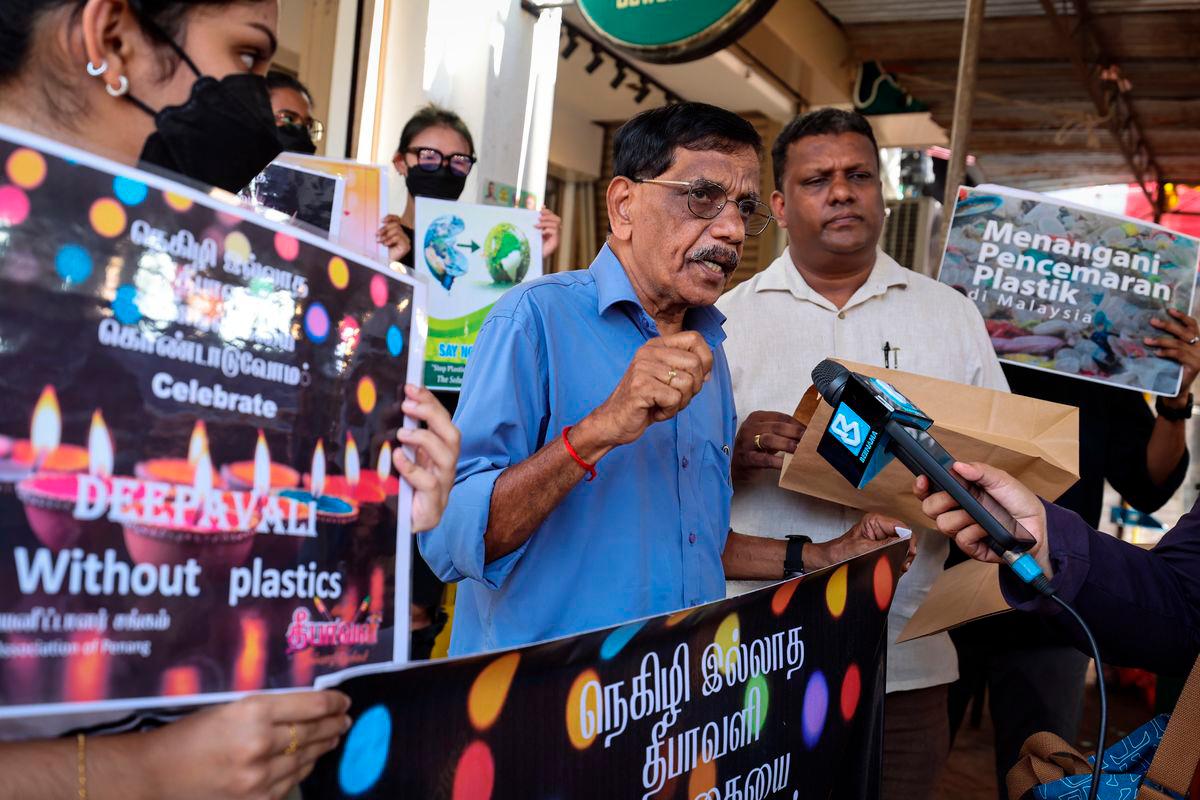GEORGE TOWN: The Consumers’ Association of Penang (CAP) has urged Hindus celebrating Deepavali to be mindful of their sugar consumption and make healthier choices during the festival of lights.
CAP senior education officer N.V. Subbarow said while Deepavali is a time of joy and indulgence, it can be especially challenging for those managing their blood sugar levels.
“Deepavali, the festival of lights, is a time of joy, celebration and delicious treats. For individuals managing blood sugar levels, this festive season can be a bit challenging.
“However, with thoughtful planning and the right choices, Hindus can enjoy Deepavali without compromising their health,” he said in a statement.
Subbarow said it is easy to overindulge in rich, high-calorie foods during the festival, noting that sugary delicacies can be particularly tempting.
“The abundance of traditional sweets, carb-heavy dishes and celebratory drinks creates a perfect storm for blood glucose fluctuations. Irregular eating patterns — late-night dinners, skipped meals and continuous snacking — further disrupt the body’s natural glucose regulation,” he said.
He advised celebrants to take small servings and avoid second helpings, adding that “social pressures to indulge often make sugar management feel like an uphill battle.”
“Festivals are meant to be enjoyed with family and friends, but moderation and awareness are key to ensuring that celebrations do not come at the expense of one’s health,” he said.
The Health Ministry’s Healthy Eating During the Deepavali Festival guide, published in 2012, similarly advises moderation when consuming festive favourites that are often high in sugar and fat.
According to the guide, Deepavali dishes are typically prepared with large amounts of ghee and sugar. Traditional sweets such as laddoo, halwa and gulab jamun can contain between 30g and 50g of sugar per 100g, depending on preparation.
A single serving of laddoo (40g) has roughly 180 calories, a slice of halwa (40g) about 200 calories, and one muruku (20g) around 120 calories — amounting to nearly 500 calories combined.
The guide recommends smaller portions, less frying, and using reduced sugar or low-fat milk to make festive treats healthier, alongside increasing fruit and water intake.
According to the National Health Screening Initiative 2023, more than half of Malaysians screened were overweight or obese, while the National Health and Morbidity Survey 2024 found that six in ten adults consume at least one sugary drink daily — a major contributor to weight gain and diabetes risk.
Meanwhile, CAP president Mohideen Abdul Kader voiced concern over the sale of firecrackers in the overcrowded Little India area during the festive season, warning that it poses a serious fire hazard.
“Many of these stalls lack fire extinguishers, safe storage and basic safety measures. A single spark in such a crowded place can cause a major fire, putting lives, shops and homes at risk,” he said.
He urged the Fire and Rescue Department to inspect the area immediately and take preventive action, stressing that firecrackers should only be sold by licensed shops following safety regulations.
“Prevention is better than disaster,” Mohideen added.









